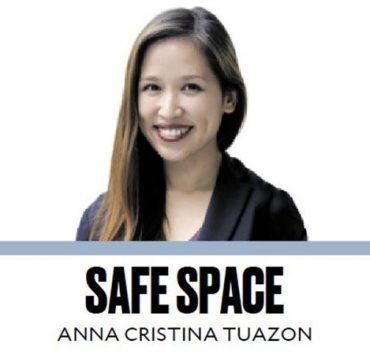Salvation for Filipino commuters

For millions of Filipinos who trooped to seaports, airports, and land transport terminals across the country to spend Holy Week with their loved ones, the ordeal that accompanies this annual exodus is so familiar and expected that many are probably resigned to this sad state of affairs.
Daily commuters, especially those in Metro Manila, know this punishing ordeal only too well.
Aside from wasting hours in horrendous traffic, they also have to bear the heavy cross of the inefficient and fragmented public transport system that can actually put lives at risk.
The Land Transportation Franchising and Regulatory Board (LTFRB), for example, found during the April 16 drug tests under “Oplan Harabas” that as many as 84 public utility drivers and two conductors tested positive for illegal drugs among the 3,270 individuals tested during a random screening conducted by the Philippine Drug Enforcement Agency.
The drug tests were conducted in major land transport terminals across the country and the LTFRB said in no uncertain terms that the bus companies harboring workers using illegal drugs face cancellation or suspension of their public transportation franchises as drug use by drivers and conductors endangers the lives of their passengers.
Several road accidents were recorded during the Holy Week, including an incident in Bacolod City when a van driven reportedly by a drunk driver plowed into a religious procession, killing three people and causing injuries to 17 others. Two people also died in Dumalinao, Zamboanga del Sur in an incident involving a 10-wheeler truck and several vehicles on Good Friday.
‘Deplorable state’
“It is unacceptable and deeply troubling that individuals entrusted with the safety of passengers are found to be operating vehicles under the influence of prohibited substances,” said LTFRB chair Teofilo Guadiz III.
Transportation Secretary Vince Dizon saw for himself how four bus companies operating along Edsa were using illegal makeshift terminals that lacked basic facilities for passengers during an inspection.
Dizon said in a statement that Philtranco, Mega Bus, Ten Ten, and RMB bus companies left passengers in a “deplorable state” because of the dire lack of chairs and comfort rooms, proper roofing, and electric fans and thus face possible sanctions.
“Walang upuan, naka-tolda, walang CR. Itong mga pasahero nagbabayad naman sila—regular fare. Hindi naman discounted ito. Hindi pwede ito (There are no seats, no cover, or comfort rooms. And these passengers pay regular fares, not paying discounted fares. This is unacceptable),” said Dizon, who has solicited the help of other government agencies to crack down on bus companies doing wrong by their passengers.
Anti-overloading policy
Such conditions, Dizon stressed, ruined the dignity of Filipino commuters.
And it’s not just land transport that is ridden with long pestering problems.
The Department of Transportation found during an inspection at the Manila North Harbor last week that there were ships overloaded with passengers, prompting the offloading of passengers. The ship was coming from Batangas Port headed to Romblon when it was caught violating the anti-overloading policy in sea travel put in place to ensure the safety of passengers.
“Nakakaawa din ang mga kababayan natin dahil may mga na-stranded. Obviously, na-stranded sila dahil nagbenta ng mas madaming ticket ‘yung shipping line compared dun sa allowable number of passengers and weight. (I feel bad for the stranded commuters. And this resulted in stranded passengers because the shipping line sold more tickets than the allowable number of passengers and weight),” Dizon explained.
Dizon vowed to hold the shipping lines accountable for mishaps that put passengers’ lives at risk.
Mere photo opportunities
Dizon inspected the Manila North Harbor as part of “Oplan Biyaheng Ayos Semana Santa and Summer Vacation” that seeks to boost safety, security, and convenience for travelers during the Holy Week, guided by President Marcos’ directive for key government agencies to ensure the “safe and convenient” travel for the public during the holidays.
Such a directive, however, should and must be observed daily and not just during times of peak travel as commuting is an everyday necessity that must be kept safe at all times.
Dizon, fortunately, has been making the right moves to enhance the commuting experience, from extending MRT operating hours and adding more trains to shorten the queues. He has also allowed the continued deployment of unconsolidated jeepneys to serve the public.
The fervent hope, however, is that these welcome acts of personally riding public transport to get a feel of the burden borne by commuters will not be mere photo opportunities and will end with policies that will permanently ease the daily burden of commuters using the country’s different public transportation systems.
Only then will the much-awaited salvation for commuters finally come.

















